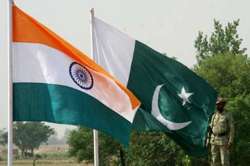World Bank halts Indus treaty processes started by India, Pakistan to resolve dispute
In a major development, the World Bank has paused the separate processes initiated by India and Pakistan under the Indus Waters Treaty to allow the two countries to consider alternative ways to resolve their disagreements.

In a major development, the World Bank has paused the separate processes initiated by India and Pakistan under the Indus Waters Treaty to allow the two countries to consider alternative ways to resolve their disagreements.
“We are announcing this pause to protect the Indus Waters Treaty and to help India and Pakistan consider alternative approaches to resolving conflicting interests under the Treaty and its application to two hydroelectric power plants,” World Bank Group President Jim Yong Kim said.
The pause was announced by Kim in letters to the finance ministers of India and Pakistan. It was also emphasised that the Bank was acting to safeguard the Treaty.
Pausing the process for now, the Bank would hold off from appointing the Chairman for the Court of Arbitration or the Neutral Expert -- appointments that had been expected on December 12 as earlier communicated by the Bank.
India had taken strong exception last month to the World Bank’s decision to set up a Court of Arbitration and appoint a Neutral Expert to go into Pakistan’s complaint against it over Kishenganga and Ratle hydroelectric projects in Jammu and Kashmir.
Surprised at the World Bank’s decision to appoint a Neutral Expert, as sought by the Indian government and at the same time establish a Court of Arbitration as wanted by Pakistan, India had said proceeding with both the steps simultaneously was “legally untenable”.
Both processes initiated by the respective countries were advancing at the same time, creating a risk of contradictory outcomes that could potentially endanger the Treaty, the Bank noted.
“This is an opportunity for the two countries to begin to resolve the issue in an amicable manner and in line with the spirit of the treaty rather than pursuing concurrent processes that could make the treaty unworkable over time. I would hope that the two countries will come to an agreement by the end of January,” Kim said.
PTI inputs